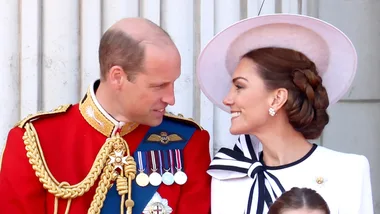There’s no denying that quarantine has changed the way the many of us live.
From the way we dress (hello, newly purchased loungewear), to the way we work, and as it turns out, even the way we snack.
After all, if conversations with friends, an extended period with restaurant restrictions, and social media is anything to go by, many of us are cooking and baking more than ever (so much banana bread).
As a result, a lot of us have found that isolation has led to a few more sneaky indulgences than usual, be it out of sheer ennui or to cure our quarantine woes. Cue: comfort food to the rescue.
If you’ve found yourself eating more in isolation and you’re trying to readjust the habit, there are strategies to you can use to help you figure out whether you’re really hungry before you reach for another slice of banana bread.
And to help you out, we consulted intuitive eating counsellor and exercise physiologist Sarah Liz King for her expert advice on how to identify your hunger and stop mindless snacking in its tracks.
Why Am I Eating More During Isolation?
Besides putting us in proximity to our kitchen all day long, isolation has resulted in our homes becoming not only our place or rest and relaxation, but our place of work, working out, socialising online and everything in between—all of which can impact our eating habits.
“The monotony of being in the same place can lead to boredom and snacking serves as a coping mechanism that allows us to take a break from what we’re doing, distract us from how we’re feeling and temporarily provide us with a hit of dopamine—the feel good neurotransmitter that is part of the brain’s reward system,” explains King.
What Technically Is ‘Hunger’ And Why Do I Struggle To Identify It?
Often found yourself snacking of late, only to realise you weren’t actually hungry in the first place? You’re not alone. Modern society has made many of us out of touch with our natural hunger cues.
“Most of us think of hunger as that rumbling in your stomach, low energy, foggy brain kind of feeling, but it may surprise you to know there are actually several types of hunger,” King tells marie claire.
“Physical hunger, which I just described, is the most common type of hunger, and stems from our bodies’ need for fuel and the only remedy to this is to eat. Other forms of hunger include emotional hunger (the desire for food to fill an emotional void), taste hunger (hunger for a specific food), and practical hunger (eating to offset a future hunger when you may be too busy to eat or food may not be available to you).”
As for why many of us have trouble picking up on our internal hunger signals? You can blame diet culture for that.
“The reason many of us are out of touch with hunger is that we’ve been taught by diet culture to avoid and ignore it. Over time your brain learns that you don’t respond appropriately to these signals, and so they down-regulate and may disappear altogether,” says King.
“This can certainly be the case for anyone who is recovering from disordered eating or has ignored the signals for quite some time. However, over time and with practice we can tune back into the gentle signs, and they strengthen again, so we can eat in tune with our hunger and fullness.”
How Can I Tell If I’m Actually Hungry Or It’s Something Else?
According to King, the best way to to figure out if it’s physical hunger or emotional hunger is to ask yourself the following questions:
1. Has the desire for food come on slowly or quickly?
“Is there an uncomfortable emotion attached to it? Physical hunger usually comes on gradually whereas an emotional hunger can come on suddenly and with associated with an intense feeling,” says King.
2. Am I craving a very specific food or is the craving for food more general?
“Emotional hunger is often the desire for a very specific potentially highly palatable food, whereas the sensation of physical hunger can be satiated with a wide variety of foods,” she explains.
3. How long ago did you eat?
“If you’ve had a satisfying and balanced meal within the last hour it could be an emotional hunger,” King notes.
4. Where do you feel the hunger in your body?
“Is it more in your head or associated with a need for comfort or security? Or is the hunger in your stomach and body (you might feel a little shaky or tired, for example)?” King adds.
And if you find that your hunger is emotional? That’s totally ok.
“It’s very common and normal to eat for reasons that aren’t physical hunger, so don’t beat yourself up if this happens,” says King.
“Instead be curious about what’s going on in your life and enquire if there are other ways to satisfy your emotional needs that don’t involve using food.”
Similarly, if you’ve found that you’re struggling with your relationship during lockdown, it’s a great idea to seek professional help.
“It can often be hard to pinpoint the reasons why we are using food as a coping strategy and equally as hard to change these behaviours if we don’t have a toolbox of different strategies and tools to call upon,” says King.
“This is where an intuitive eating counsellor or dietitian can be incredibly helpful.”










